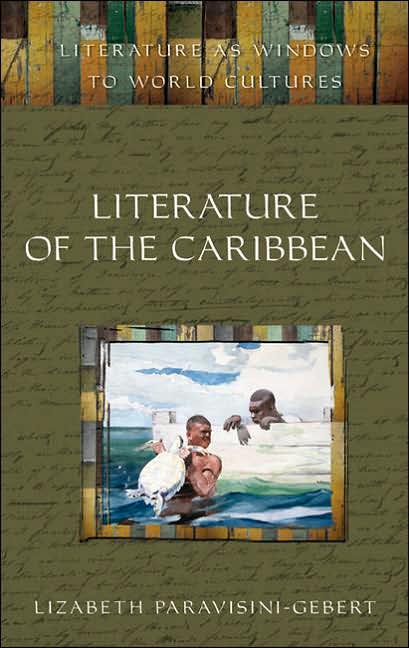 This book project stemmed out of my interest in making Caribbean literature accessible to a larger public by offering a series of studies that could make it possible for classics of the region to be incorporated into the high school curriculum in the United States. I selected the fifteen texts I thought most suitable for high school readers and asked myself ÔÇťif I were a high school teacher unfamiliar with the nuances of life and culture in the Caribbean, what would I need to know in order to teach each of these texts effectively?ÔÇŁ The book includes chapters on Michael AnthonyÔÇÖs The Year in San Fernando, Alejo CarpentierÔÇÖs The Kingdom of this World, Michelle CliffÔÇÖs Abeng, Maryse Cond├ęÔÇÖs I, Tituba, Black Witch of Salem, Raphael ConfiantÔÇÖs Mamzelle Dragonfly, Edwidge DanticatÔÇÖs Breath, Eyes, Memory, Zee EdgellÔÇÖs Beka Lamb, Magali Garc├şa RamisÔÇÖs Happy Days, Uncle Sergio, Jamaica KincaidÔÇÖs Annie John, Mayra MonteroÔÇÖs The Messenger, V. S. NaipaulÔÇÖs The Mystic Masseur, Patricia PowellÔÇÖs A Small Gathering of Bones, Jean RhysÔÇÖs Wide Sargasso Sea, Simone Schwarz-BartÔÇÖs The Bridge of Beyond, and Derek WalcottÔÇÖs Omeros.
This book project stemmed out of my interest in making Caribbean literature accessible to a larger public by offering a series of studies that could make it possible for classics of the region to be incorporated into the high school curriculum in the United States. I selected the fifteen texts I thought most suitable for high school readers and asked myself ÔÇťif I were a high school teacher unfamiliar with the nuances of life and culture in the Caribbean, what would I need to know in order to teach each of these texts effectively?ÔÇŁ The book includes chapters on Michael AnthonyÔÇÖs The Year in San Fernando, Alejo CarpentierÔÇÖs The Kingdom of this World, Michelle CliffÔÇÖs Abeng, Maryse Cond├ęÔÇÖs I, Tituba, Black Witch of Salem, Raphael ConfiantÔÇÖs Mamzelle Dragonfly, Edwidge DanticatÔÇÖs Breath, Eyes, Memory, Zee EdgellÔÇÖs Beka Lamb, Magali Garc├şa RamisÔÇÖs Happy Days, Uncle Sergio, Jamaica KincaidÔÇÖs Annie John, Mayra MonteroÔÇÖs The Messenger, V. S. NaipaulÔÇÖs The Mystic Masseur, Patricia PowellÔÇÖs A Small Gathering of Bones, Jean RhysÔÇÖs Wide Sargasso Sea, Simone Schwarz-BartÔÇÖs The Bridge of Beyond, and Derek WalcottÔÇÖs Omeros.
ÔÇťAccessibly written and filled with penetrating insights, this book will prove a vital interpretive tool for both previously unacquainted readers and symbol-seeking scholars.ÔÇŁ LIBRARY JOURNAL
Creole Religious of the Caribbean: An Introduction from Vodou and Santer├şa to Obeah and Espiritismo. With Margarite Fern├índez Olmos. New York: New York University Press, 2003. Revised edition forthcoming in 2010.
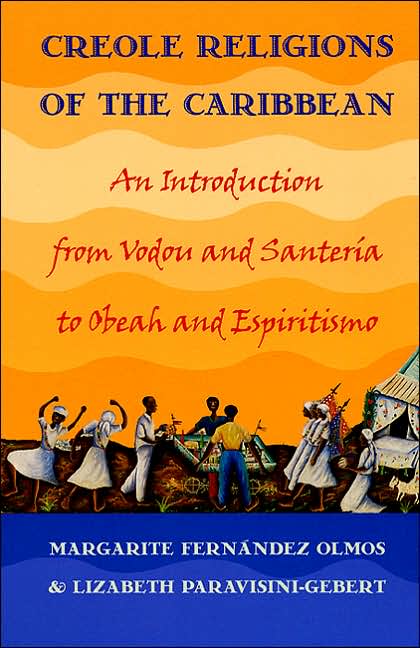 Creole Religions of the Caribbean offers a comprehensive introduction to the syncretic religions that have developed in the region. From Vodou, Santer├şa, Regla de Palo, the Abaku├í Secret Society, and Obeah to Quimbois and Espiritismo, the volume traces the historical-cultural origins of the major Creole religions, as well as the newer traditions such as Pocomania and Rastafarianism.
Creole Religions of the Caribbean offers a comprehensive introduction to the syncretic religions that have developed in the region. From Vodou, Santer├şa, Regla de Palo, the Abaku├í Secret Society, and Obeah to Quimbois and Espiritismo, the volume traces the historical-cultural origins of the major Creole religions, as well as the newer traditions such as Pocomania and Rastafarianism.
"Bravo! A well-written text that de-mystifies Creole spiritual practices and places them in historical perspective is a major contribution to the twenty-first century. Over and above the accurate and detailed descriptions of the various spiritual practices of the Caribbean, the authors have clearly delineated the historic origin and connection of Creole practices to African religions, often indicating the specific regions of Africa from which they came. This volume provides an excellent overview of the history and culture of the Caribbean islands and is the first of its kind to present comprehensive, well-researched treatise of Obeah, Myalism, Quimbois, Espiritismo, Vodou, Santeria, Regla de Palo, and the Abukua Secret Society as well as the more recent traditions of Rastafarianism and Pocomania. This work is interesting and will leave the reader well informed about the Caribbean island's religions, practices, and culture, complete with present-day expressions in the Caribbean. It will be an important text for the study of the Caribbean, religion, ethnicity, race, and culture.ÔÇŁ MULTICULTURAL REVIEW
"Creole Religions of the Caribbean approaches readers as if they were out-of-town guests at a dinner party, thoroughly acquainting them with the topics of conversation and encouraging them to mingle among the liveliest characters."THE JOURNAL OF RELIGION
Jamaica Kincaid: A Critical Companion. Westport, CT.: Greenwood Press, 1999.
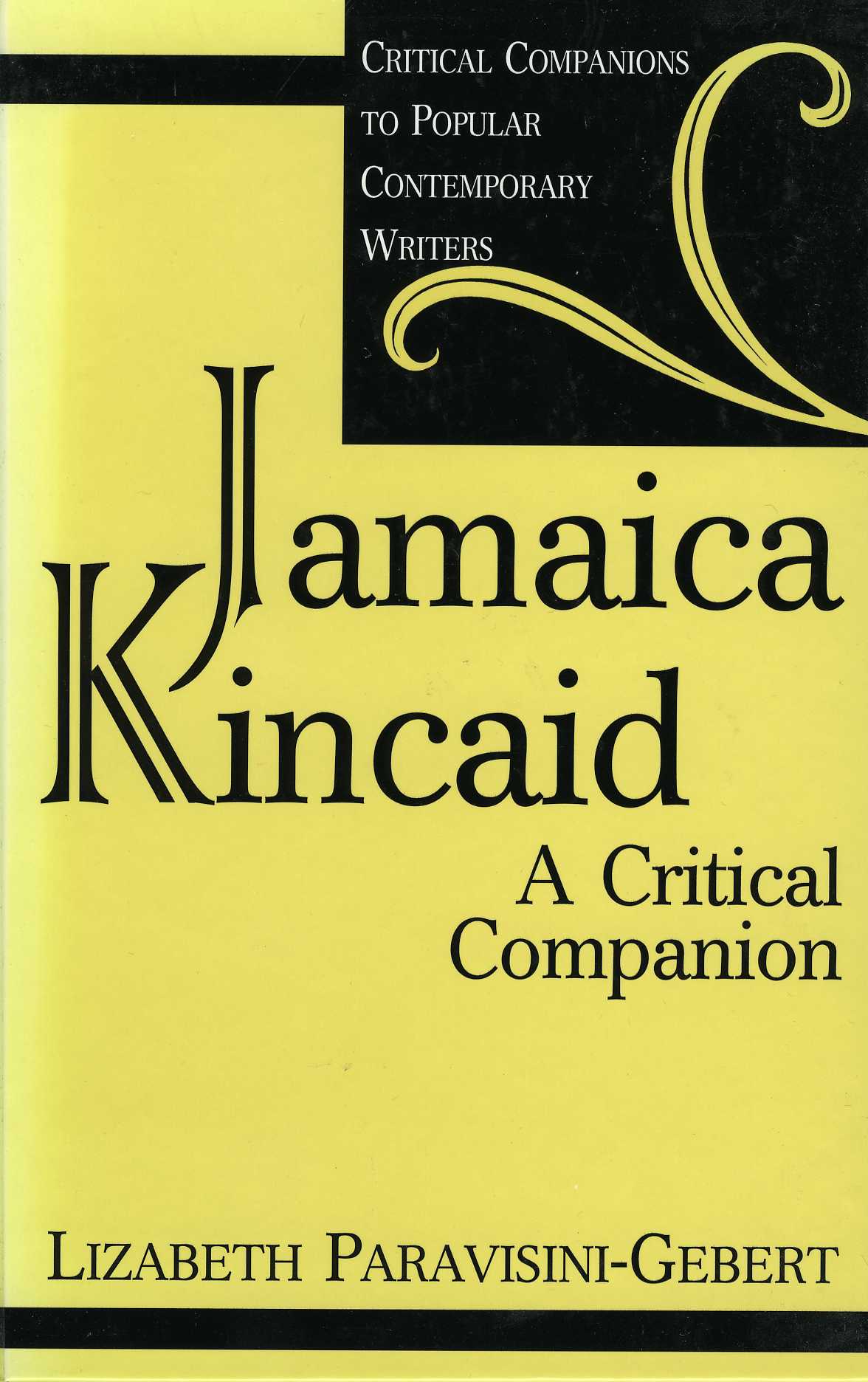 ÇťIn this crafted, detailed biocritical study, Paravisini-Gebert traces Kincaid's literary development, from her British-dominated schooling in Antigua to her astonishing career as a freelance writer for various journals and magazines.... Caribbean scholars will be particularly interested in Paravisini-Gebert's critical observations on the influence of Obeah, an African-based religious system prevalent among Antigua's black population...ÔÇŁÔÇôCHOICE
ÇťIn this crafted, detailed biocritical study, Paravisini-Gebert traces Kincaid's literary development, from her British-dominated schooling in Antigua to her astonishing career as a freelance writer for various journals and magazines.... Caribbean scholars will be particularly interested in Paravisini-Gebert's critical observations on the influence of Obeah, an African-based religious system prevalent among Antigua's black population...ÔÇŁÔÇôCHOICE
Phyllis Shand Allfrey: A Caribbean Life. New Brunswick, N.J.: Rutgers University Press, 1996.
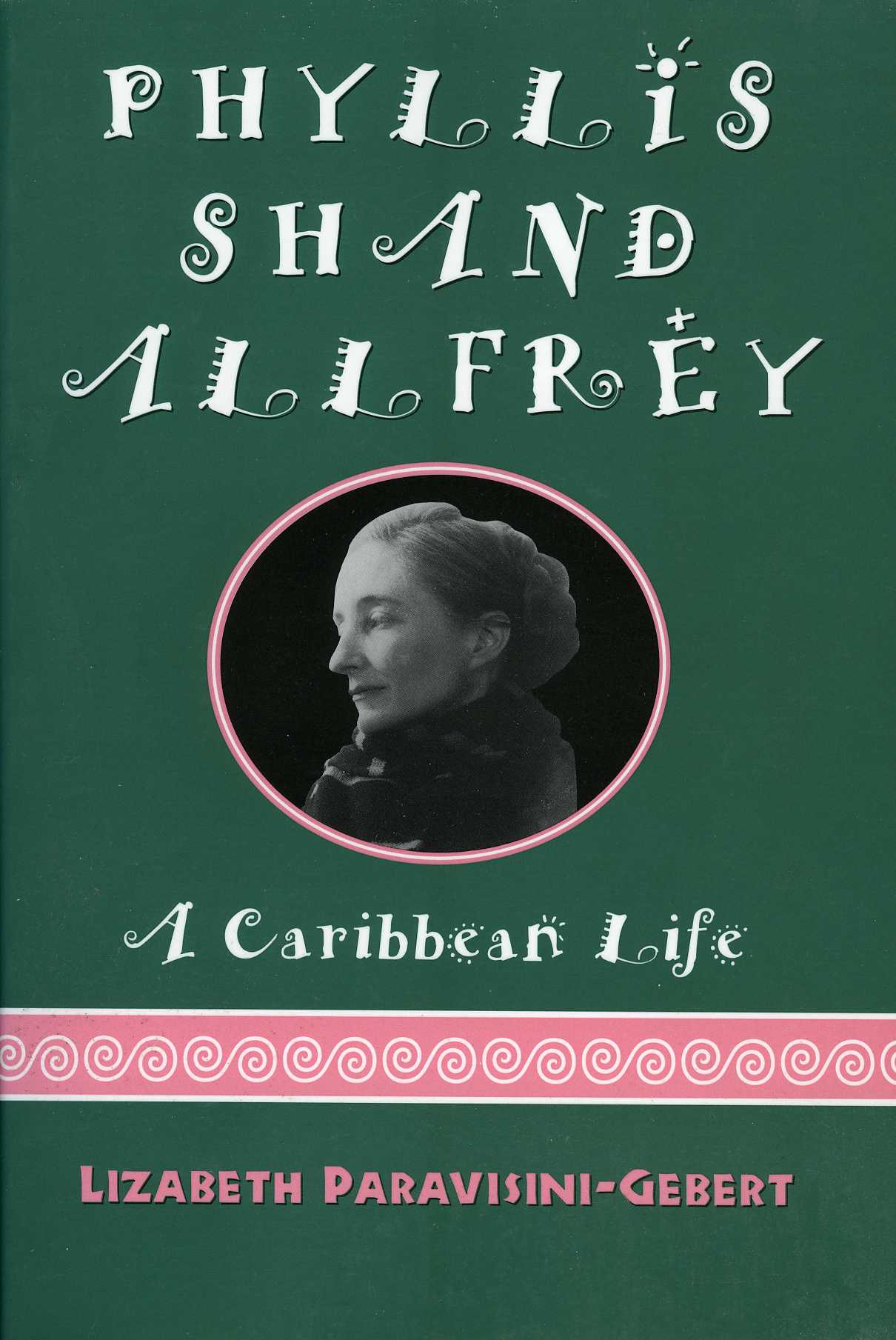 This biography of the writer and politician recreates Allfrey's life against the background of 20th-century Caribbean political and literary historyÔÇöfrom the decline of the planter class, the rise of party politics, the efforts to join the West Indies into a federation in the 1960s, and the post-independence period after 1970.
"A fascinating portrait.... endears us to the island of Dominica but has made a major contribution to Caribbean studies." MARYSE CONDE, author of Crossing the Mangrove
This biography of the writer and politician recreates Allfrey's life against the background of 20th-century Caribbean political and literary historyÔÇöfrom the decline of the planter class, the rise of party politics, the efforts to join the West Indies into a federation in the 1960s, and the post-independence period after 1970.
"A fascinating portrait.... endears us to the island of Dominica but has made a major contribution to Caribbean studies." MARYSE CONDE, author of Crossing the Mangrove
"A marvel of reconstruction..." JOAN DAYAN, author of Haiti, History, and the Gods
"One of the very best biographies of a West Indian ever written..." PETER HULME, University of Essex
BOOKS : Editions, Anthologies, Translations, Bibliographies
Displacements and Transformations in Caribbean Literature and Culture [Essays.] Edited with Ivette Romero-Cesareo. Gainesville, Florida: University Press of Florida, 2008.
 The geopolitical contours of the Caribbean have changed over the centuries.
Amerindian chiefdoms gave way to European colonies that have been replaced by nations of various
political flavors. Connections between islands and countries vary almost as much as the languages
spoken in the region. As people, cultures, and ideologies have collided over the centuries, the
difficulty of describing the region has become ever more complex. Displacements and Transformations in Caribbean Cultures brings together some of the top scholars working on the Caribbean in a wide range of fields. They address a variety of subjects, from the colonial slave trade to the discourse of AIDS in the twenty-first century, from Haitian art of the Botpippel to U.S. imperialist fiction of Cuba. Covering all parts of the region and most linguistic groups, the essays demonstrate that the Caribbean as a multicultural geographic area defies simple classification. Contributors include Peter Hulme, Yolanda Mart├şnez San Miguel, Jalil Sued Badillo, Kevin Meehan, Michael Aronna, and Antonio Ben├ştez Rojo.
The geopolitical contours of the Caribbean have changed over the centuries.
Amerindian chiefdoms gave way to European colonies that have been replaced by nations of various
political flavors. Connections between islands and countries vary almost as much as the languages
spoken in the region. As people, cultures, and ideologies have collided over the centuries, the
difficulty of describing the region has become ever more complex. Displacements and Transformations in Caribbean Cultures brings together some of the top scholars working on the Caribbean in a wide range of fields. They address a variety of subjects, from the colonial slave trade to the discourse of AIDS in the twenty-first century, from Haitian art of the Botpippel to U.S. imperialist fiction of Cuba. Covering all parts of the region and most linguistic groups, the essays demonstrate that the Caribbean as a multicultural geographic area defies simple classification. Contributors include Peter Hulme, Yolanda Mart├şnez San Miguel, Jalil Sued Badillo, Kevin Meehan, Michael Aronna, and Antonio Ben├ştez Rojo.
"A most stimulating project that presents a critical and unique approach to Caribbean geographies. The variety and scope of the volume is intellectually challenging and refreshing to scholars, yet it is a collection that is accessible to a very wide audience."JOSÉ F. BUSCAGLIA-SALGADO
C├ílidos, p├ęrfidos fulgores: cuentos de Jean Rhys. [Spanish translation of Jean RhysÔÇÖ Sleep It Off Lady]. Barcelona: Verdecielo Ediciones, 2006.
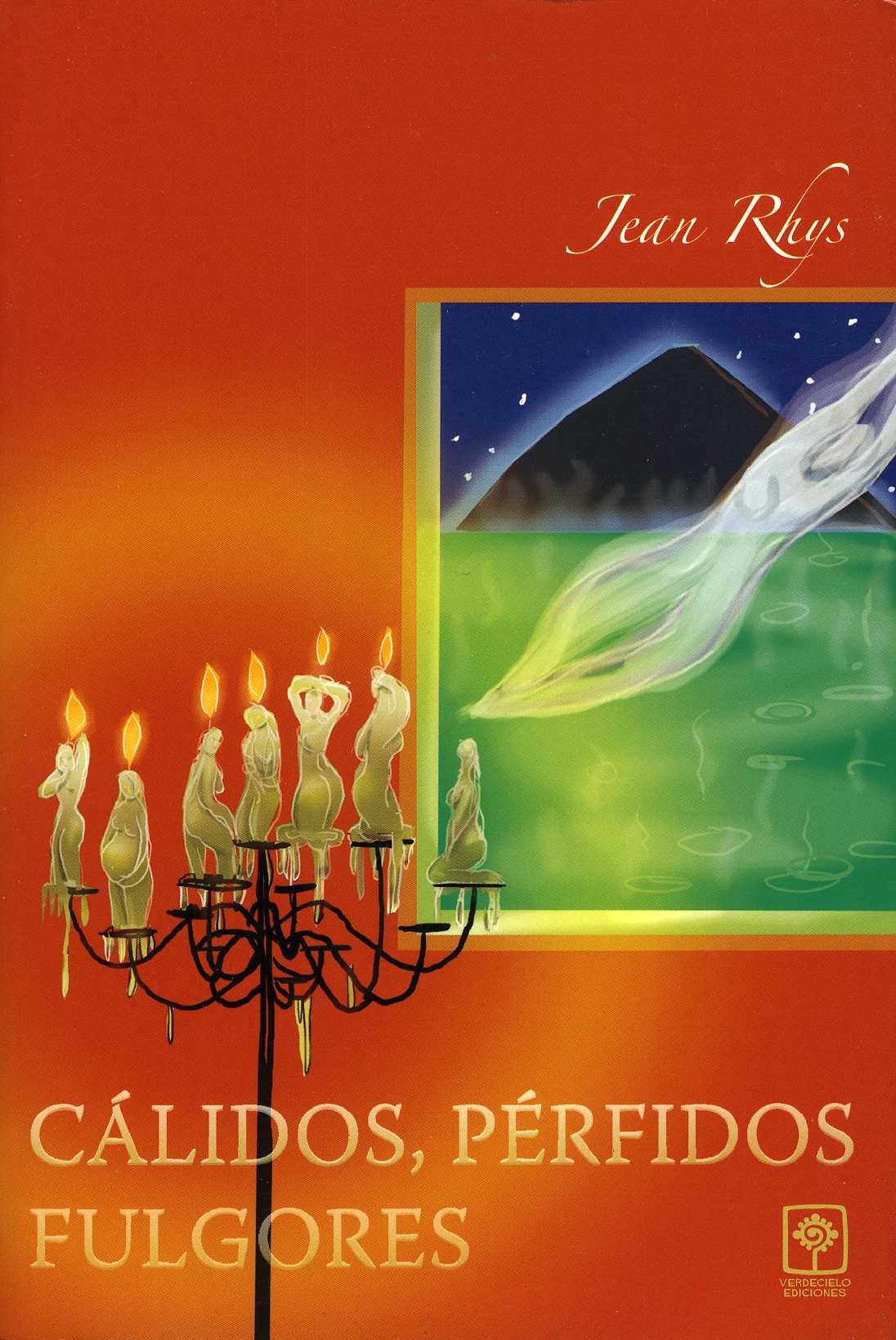 Includes my translations into Spanish of the following stories: ÔÇťPioneers, Oh Pioneers,ÔÇŁ ÔÇŁGoodbye Marcus, Goodbye Rose,ÔÇŁ ÔÇťThe BishopÔÇÖs Feast,ÔÇŁ ÔÇťHeat,ÔÇŁ ÔÇťFishy Waters,ÔÇŁ ÔÇťOvertures and Beginners Please,ÔÇŁ ÔÇťBefore the Deluge,ÔÇŁ ÔÇťOn Not Shooting Sitting Birds,ÔÇŁ ÔÇťKikimora,ÔÇŁ ÔÇťNight Out 1925,ÔÇŁ ÔÇťThe Insect World,ÔÇŁ ÔÇťRapunzel Rapunzel,ÔÇŁ ÔÇŁWho Knows WhatÔÇÖs Up in the Attic?,ÔÇŁ ÔÇŁSleep It Off Lady,ÔÇŁ ÔÇŁI Used to Live Here Once,ÔÇŁÔÇŁMaking Cocktails,ÔÇŁ ÔÇŁLet Them Call It Jazz,ÔÇŁ ÔÇŁI Spy a Stranger,ÔÇŁ ÔÇŁThe Imperial Road,ÔÇŁ and ÔÇťInvitation to the Dance.ÔÇŁ
Includes my translations into Spanish of the following stories: ÔÇťPioneers, Oh Pioneers,ÔÇŁ ÔÇŁGoodbye Marcus, Goodbye Rose,ÔÇŁ ÔÇťThe BishopÔÇÖs Feast,ÔÇŁ ÔÇťHeat,ÔÇŁ ÔÇťFishy Waters,ÔÇŁ ÔÇťOvertures and Beginners Please,ÔÇŁ ÔÇťBefore the Deluge,ÔÇŁ ÔÇťOn Not Shooting Sitting Birds,ÔÇŁ ÔÇťKikimora,ÔÇŁ ÔÇťNight Out 1925,ÔÇŁ ÔÇťThe Insect World,ÔÇŁ ÔÇťRapunzel Rapunzel,ÔÇŁ ÔÇŁWho Knows WhatÔÇÖs Up in the Attic?,ÔÇŁ ÔÇŁSleep It Off Lady,ÔÇŁ ÔÇŁI Used to Live Here Once,ÔÇŁÔÇŁMaking Cocktails,ÔÇŁ ÔÇŁLet Them Call It Jazz,ÔÇŁ ÔÇŁI Spy a Stranger,ÔÇŁ ÔÇŁThe Imperial Road,ÔÇŁ and ÔÇťInvitation to the Dance.ÔÇŁ
Los fantabulosos vuelos: cuentos de mujeres caribe├▒as. Edited with Carmen Esteves. Translations by Lizabeth Paravisini-Gebert. Barcelona: Verdecielo Ediciones, 2005.
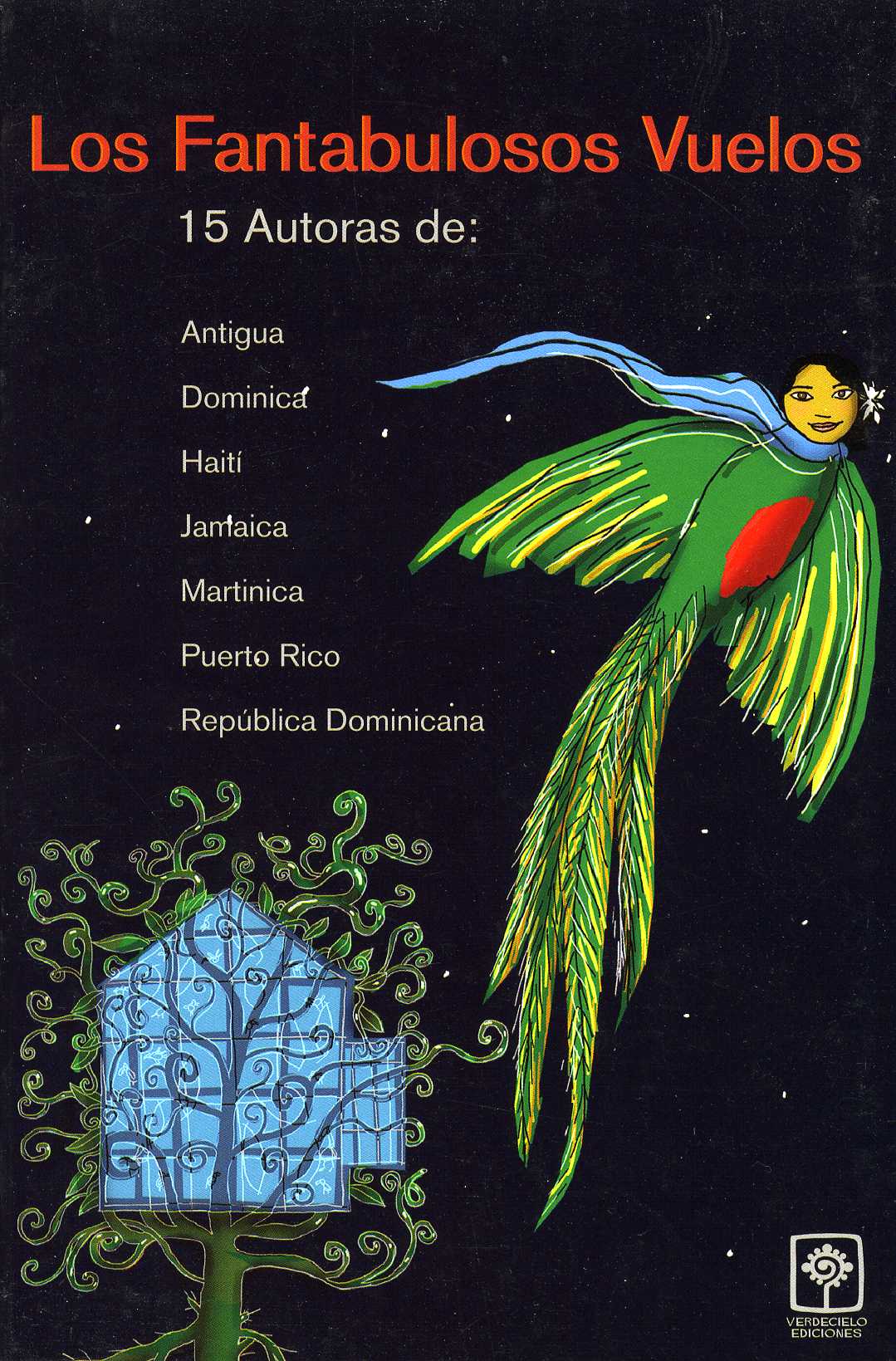 An anthology of short stories by Caribbean women. It includes my translations into Spanish of: "Piano Bar" by Liliane D├ęvieux, "Fleur rouge" by Paulette Poujol-Oriol, "Un potage de lentils" by Marie-Th├ęr├Ęse Colimon-Hall, ÔÇťLittle Cog-burtÔÇŁ by Phyllis Shand Allfrey, ÔÇťThe Day They Burned the BooksÔÇŁ by Jean Rhys, ÔÇťGirlÔÇŁ by Jamaica Kincaid, ÔÇťBright ThursdaysÔÇŁ by Olive Senior; ÔÇťColumbaÔÇŁ by Michelle Cliff, and ÔÇťStation Op├ęra. Six heures du soir. Pendant des moisÔÇŁ by Jeanne Hyvrard.
An anthology of short stories by Caribbean women. It includes my translations into Spanish of: "Piano Bar" by Liliane D├ęvieux, "Fleur rouge" by Paulette Poujol-Oriol, "Un potage de lentils" by Marie-Th├ęr├Ęse Colimon-Hall, ÔÇťLittle Cog-burtÔÇŁ by Phyllis Shand Allfrey, ÔÇťThe Day They Burned the BooksÔÇŁ by Jean Rhys, ÔÇťGirlÔÇŁ by Jamaica Kincaid, ÔÇťBright ThursdaysÔÇŁ by Olive Senior; ÔÇťColumbaÔÇŁ by Michelle Cliff, and ÔÇťStation Op├ęra. Six heures du soir. Pendant des moisÔÇŁ by Jeanne Hyvrard.
It Falls Into Place: Short Stories by Phyllis Shand Allfrey. Selection and introduction by Lizabeth Paravisini-Gebert. London: Papillote Press, 2004.
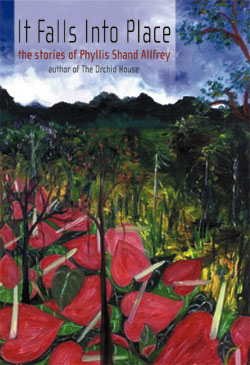 It Falls into Place brings together for the first time the shorter
fiction of Phyllis Shand Allfrey, whose novel The Orchid House is a classic of Caribbean literature. These tantalizing storiesÔÇöset in Dominica, New York and London yet always steeped in an unmistakably West Indian identityÔÇöprobe beneath the surface of colonial life, often drawing on autobiographical experience. Allfrey's skill is to lead her charactersÔÇöof different races and culturesÔÇöinto unpredictable encounters where miracles can happen. The book was selected as one of the ÔÇťNotable Books of 2004ÔÇŁ by the Times Literary Supplement (London).
It Falls into Place brings together for the first time the shorter
fiction of Phyllis Shand Allfrey, whose novel The Orchid House is a classic of Caribbean literature. These tantalizing storiesÔÇöset in Dominica, New York and London yet always steeped in an unmistakably West Indian identityÔÇöprobe beneath the surface of colonial life, often drawing on autobiographical experience. Allfrey's skill is to lead her charactersÔÇöof different races and culturesÔÇöinto unpredictable encounters where miracles can happen. The book was selected as one of the ÔÇťNotable Books of 2004ÔÇŁ by the Times Literary Supplement (London).
"The freshness and quirkiness of Allfrey's gaze into aspects of colonial life can only delight the reader. She is a West Indian writer startled by the landscape of her imagining and in love with her characters. Allfrey the artist and Allfrey the activist merge in this memorable collection of stories." DAVID DABYDEEN
"Her delicate touch, discerning eye and a heart wise to the human condition animate these stories. It Falls into Place will confirm Allfrey's major contribution fo the development of West Indian literature and enchant new readers everywhere." OLIVE SENIOR
Healing Cultures: Art and Religion as Curative Practices in the Caribbean and Its Diaspora [Essays]. Edited with Margarite Fern├índez Olmos. New York: Palgrave/St. MartinÔÇÖs Press, 2001.
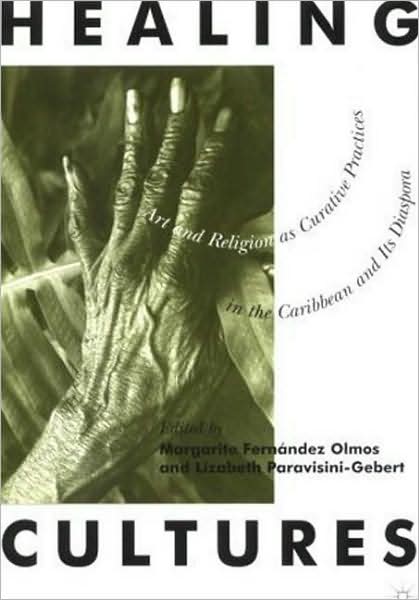 The Spanish expression--la cultura cura (culture heals)--is an affirmation of the potential healing power of a variety of cultural practices that together constitute the ethos of a people. What happens, however, when cultures themselves are in jeopardy? What are the "antidotes" or healing modalities for an ailing culture? Healing Cultures addresses these questions from a variety of disciplines--anthropology, holistic folk traditions, literature, film, cultural and religious studies--bringing together the broad range of beliefs and the spectrum of practices that have sustained the peoples and cultures of the Caribbean. Contributors include Brian M. Du Toit, Karen McCarthy Brown, Ester Shapiro Rok, Anna Wexler, Opal Palmer Adisa, and Mayra Montero, among others.
ÔÇťThis blend of historical overviews, personal testimonies, and portrayals of struggles, losses and victories through the various media provide new pathways for exploring cultures and their healing systems.ÔÇŁ THE AMERICAS
The Spanish expression--la cultura cura (culture heals)--is an affirmation of the potential healing power of a variety of cultural practices that together constitute the ethos of a people. What happens, however, when cultures themselves are in jeopardy? What are the "antidotes" or healing modalities for an ailing culture? Healing Cultures addresses these questions from a variety of disciplines--anthropology, holistic folk traditions, literature, film, cultural and religious studies--bringing together the broad range of beliefs and the spectrum of practices that have sustained the peoples and cultures of the Caribbean. Contributors include Brian M. Du Toit, Karen McCarthy Brown, Ester Shapiro Rok, Anna Wexler, Opal Palmer Adisa, and Mayra Montero, among others.
ÔÇťThis blend of historical overviews, personal testimonies, and portrayals of struggles, losses and victories through the various media provide new pathways for exploring cultures and their healing systems.ÔÇŁ THE AMERICAS
Women at Sea: Travel Writing and the Margins of Caribbean Discourse [Essays]. Edited with Ivette Romero. New York: Palgrave/St. MartinÔÇÖs Press, 2001.
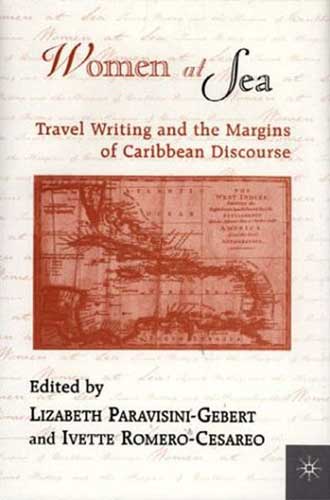 This collection of essays offers a contestatory discourse that embraces the forms of travelogue, autobiography, and ethnographic accounts as vehicles for womenÔÇÖs rewriting of "flawed" or incomplete accounts of Caribbean cultures and societies. Contributors include Jos├ę Piedra, Joan Dayan, Luisa Campuzano, and Richard Frohock, among others.
This collection of essays offers a contestatory discourse that embraces the forms of travelogue, autobiography, and ethnographic accounts as vehicles for womenÔÇÖs rewriting of "flawed" or incomplete accounts of Caribbean cultures and societies. Contributors include Jos├ę Piedra, Joan Dayan, Luisa Campuzano, and Richard Frohock, among others.ÔÇťProductively disruptive, this book could be one of the most useful pebbles ever to be flung into the pool of maritime historiography.ÔÇŁ INTERNATIONAL JOURNAL OF MARITIME HISTORY
ÔÇťWomen at Sea provides a vibrant critical analysis of competing discourses on Caribbean culture in travel writing. Essays show how social landscapes are gendered battlegrounds between nationalism and cultural colonization, patriarchy and female independence. Editors Lizabeth Paravisini-Gebert and Ivette Romero skillfully weave multiple Caribbean exchanges on hybridity, gender-bending, race, autobiography and ideology in the construction of historical narratives. Without a doubt, it is a seminal work in Caribbean literary criticism.ÔÇŁ CHOICE
The Dominican Republic: Literature and Culture. Special issue of Callaloo. Co-edited with Consuelo L├│pez Springfield. 23:3 [Summer 2000]. 333pp.
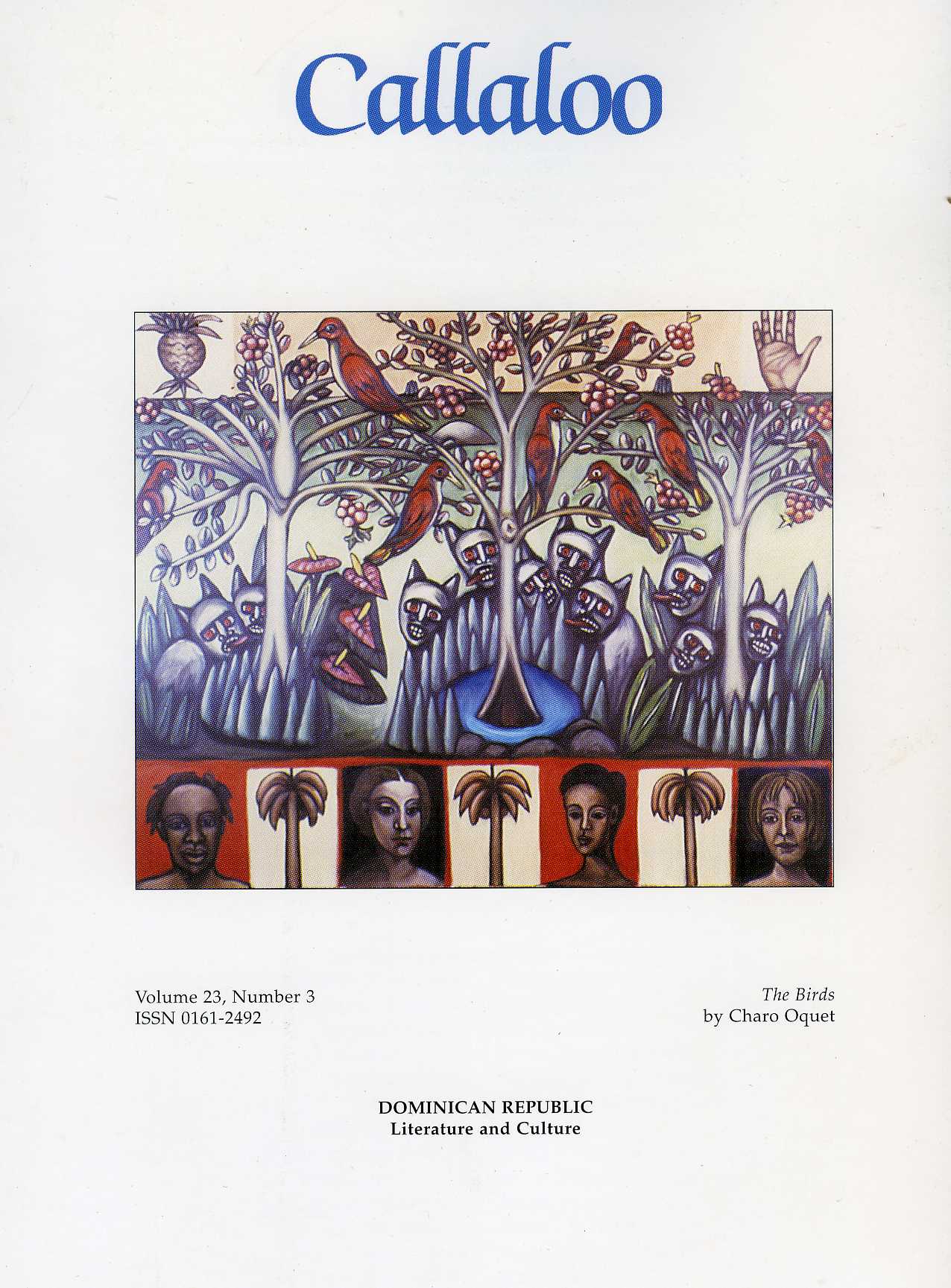 Includes my essay: "Allotropes: The Short Stories of ├üngela Hern├índezÔÇŁ and my translations of "Mambr├║ Did Not Go to War" by A├şda Cartagena Portalat├şn, "Allotropes" by ├üngela Hern├índez, "Commonplaces " by ├üngela Hern├índez, "The Ghost of El Conde Street" by Pedro Peix, "Females and Ghosts" by Pedro Peix, "Female Intuition" by Pedro Verg├ęs, "The Mountain holds the Treasure" by Viriato Senci├│n, "Eva's Obsession" by Jos├ę Alc├íntara Almanzar, and "Temptations" by Jos├ę Alc├íntara Almanzar.
Includes my essay: "Allotropes: The Short Stories of ├üngela Hern├índezÔÇŁ and my translations of "Mambr├║ Did Not Go to War" by A├şda Cartagena Portalat├şn, "Allotropes" by ├üngela Hern├índez, "Commonplaces " by ├üngela Hern├índez, "The Ghost of El Conde Street" by Pedro Peix, "Females and Ghosts" by Pedro Peix, "Female Intuition" by Pedro Verg├ęs, "The Mountain holds the Treasure" by Viriato Senci├│n, "Eva's Obsession" by Jos├ę Alc├íntara Almanzar, and "Temptations" by Jos├ę Alc├íntara Almanzar.
Sacred Possessions: Vodou, Santer├şa, Obeah and the Caribbean [Essays]. Edited with Margarite Fern├índez Olmos. New Brunswick, N.J.: Rutgers University Press, 1997; rpt. 1998, 2000.
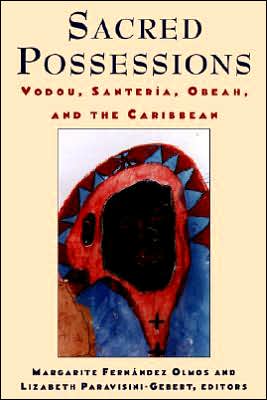 Sacred Possessions is an unprecedented collection of thirteen comparative and interdisciplinary essays exploring the cross-cultural dynamics of African-based religious systems in the Caribbean. The contributors analyze the nature and liturgies of Vodou, Santeria, Obeah, Quimbois, and Gaga as they form one central cultural matrix in the region. They ask how these belief systems were affected by differing colonial histories and landscapes, how they affected other cultural expressions (from the oral tradition to popular art and literature), and how they have been perceived and (mis)represented by the West. The book is a unique contribution to the study of the Caribbean as a site of mutliculturalism, demonstrating the linkages between anthropology, religion, literature, and popular culture. Contributors include Joan Dayan, Anna Wexler, Jos├ę Piedra, Brinda Mehta, Alan Richardson, and Miguel Barnet.
Sacred Possessions is an unprecedented collection of thirteen comparative and interdisciplinary essays exploring the cross-cultural dynamics of African-based religious systems in the Caribbean. The contributors analyze the nature and liturgies of Vodou, Santeria, Obeah, Quimbois, and Gaga as they form one central cultural matrix in the region. They ask how these belief systems were affected by differing colonial histories and landscapes, how they affected other cultural expressions (from the oral tradition to popular art and literature), and how they have been perceived and (mis)represented by the West. The book is a unique contribution to the study of the Caribbean as a site of mutliculturalism, demonstrating the linkages between anthropology, religion, literature, and popular culture. Contributors include Joan Dayan, Anna Wexler, Jos├ę Piedra, Brinda Mehta, Alan Richardson, and Miguel Barnet."A marvelous example of African Diaspora Studies . . . challenges our usual scholarly and everyday articulations of religion, even as it clearly articulates the possibilities and limits of Caribbean African retentions in Vodou, Santeria, and Obeah." BARBARA CHRISTIAN
Phyllis Shand AllfreyÔÇÖs The Orchid House [New edition with Introduction]. New Brunswick, N.J.: Rutgers University Press, 1996.
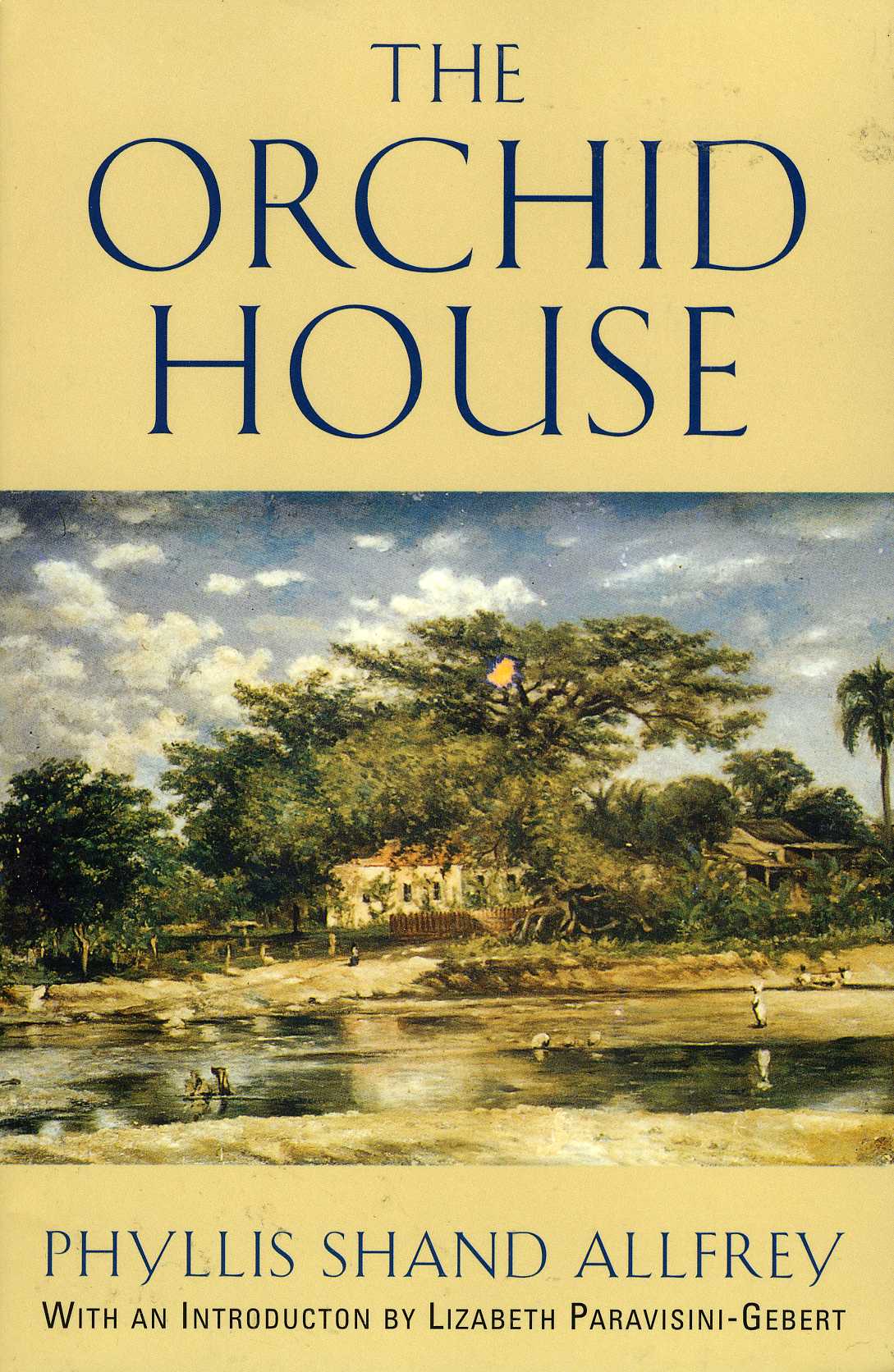 First published in 1954, The Orchid House, Phyllis Shand Allfrey's only published novel, is a classic of Caribbean literature. In this markedly autobiographical story of the three daughters of a once-powerful but now impoverished white family, Allfrey interweaves her family's history with the history of her home island of Dominica in the twentieth century. The novel is written in a sensuous style and the story remarkably told through the eyes of Lally, the black nurse of the three sisters. Often praised for the clearsightedness of its analysis of the Dominican historical process, The Orchid House stands at a crucial intersection of West Indian politics. It was during this period that the colonized took over from the colonizer the direction of local governments. Allfrey, a Fabian socialist and founder of Dominica's first political party, articulates in this novel the central tenet of a political philosophy that guided a lifetime of grassroots activism: that profound changes had to take place in the power structures of Caribbean societies to bring social justice to its peoples, and that those who persevered in seeking to revive the past were doomed.
First published in 1954, The Orchid House, Phyllis Shand Allfrey's only published novel, is a classic of Caribbean literature. In this markedly autobiographical story of the three daughters of a once-powerful but now impoverished white family, Allfrey interweaves her family's history with the history of her home island of Dominica in the twentieth century. The novel is written in a sensuous style and the story remarkably told through the eyes of Lally, the black nurse of the three sisters. Often praised for the clearsightedness of its analysis of the Dominican historical process, The Orchid House stands at a crucial intersection of West Indian politics. It was during this period that the colonized took over from the colonizer the direction of local governments. Allfrey, a Fabian socialist and founder of Dominica's first political party, articulates in this novel the central tenet of a political philosophy that guided a lifetime of grassroots activism: that profound changes had to take place in the power structures of Caribbean societies to bring social justice to its peoples, and that those who persevered in seeking to revive the past were doomed.
Remaking a Lost Harmony: Contemporary Fiction from the Hispanic Caribbean. [English translations with introduction]. Edited with Margarite Fernández Olmos. Fredonia, N.Y.: White Pine Press, 1995. 250pp.
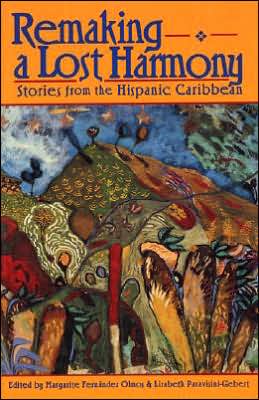 These diverse stories, all of which were written after the 1959 Cuban Revolution, reflect both the unique and colorful culture of the islands and the social changes that provided the impetus to search for the lost harmony of Caribbean and Latin American culture.
These diverse stories, all of which were written after the 1959 Cuban Revolution, reflect both the unique and colorful culture of the islands and the social changes that provided the impetus to search for the lost harmony of Caribbean and Latin American culture. "Wow! An important and timely collection of voices long known in the Caribbean...from this vital part of the hemisphere." JULIA ALVAREZ
Includes my translations of: "Corinne, Amiable Girl" by Mayra Montero, "Colonel Bum Vivant" by Rosario Ferr├ę (translated with Rosario Ferr├ę), "Silvia" by Ver├│nica L├│pez K├│nina, "The Marked One" by Norberto Fuentes, "The Fire" by Hilma Contreras, "Mambr├║ Did Not Go to War" by A├şda Cartagena Portalat├şn, ÔÇťWhat Do You Know, Vivian" by Luis Garc├şa, "Emilio's Visitations" by Roberto Montero, "The Blind Buffalo" by Mirta Y├í├▒ez, "Requiem for a Wreathless Corpse" by Pedro Peix, "Black Alleluia" by Luis Rafael S├ínchez (translated with Margarite Fern├índez Olmos), "Lulu or the metamorphosis" by Jos├ę Alc├íntara Alm├ínzar, "Gnawing on a Rose" by ├üngela Hern├índez, "This Noise was Different" by Olga Nolla, and "Liliane's Sunday" By Ana Lydia Vega.
Die Frau im Sand: Erotische Phantasien von Frauen [German translation of Pleasure in the Word by Susanne Keller]. M├╝nchen: Heyne, 1995.
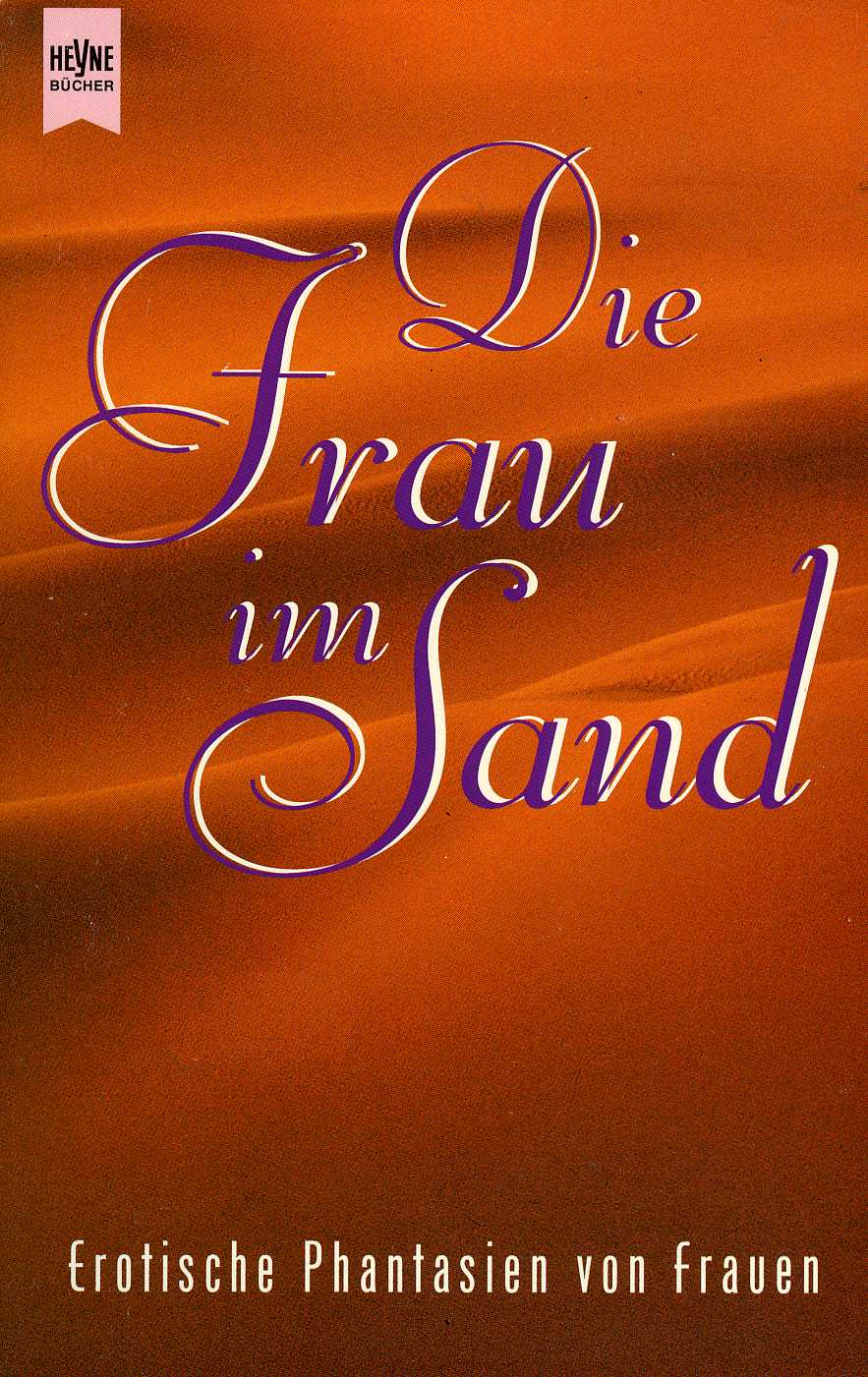 German translation of El placer de la palabraÔÇödescribed below in its original Spanish edition.
German translation of El placer de la palabraÔÇödescribed below in its original Spanish edition.
Caribbean Women Novelists: An Annotated Critical Bibliography. With Olga Torres-Seda. Westport, Conn.: Greenwood Press, 1993. 427pp.
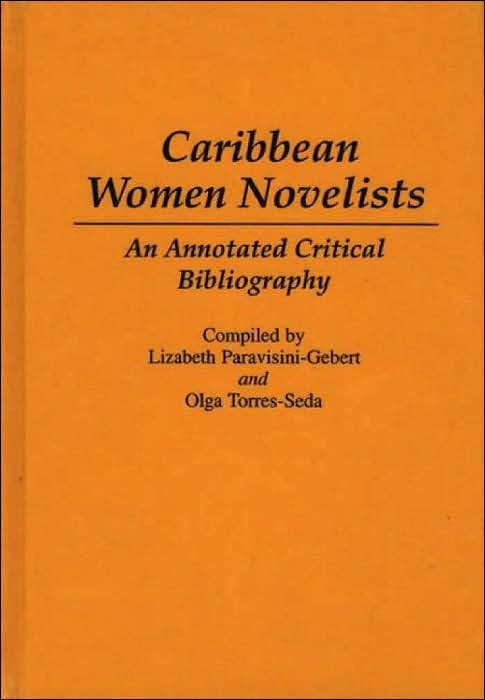 This comprehensive, annotated bibliography of works by and about Caribbean women novelists from 1950 to the present covers writings in English, Spanish, French, Dutch, and their dialects. Entries on some 150 individual writers are organized alphabetically and comprise a biographical sketch, data on novels with plot synopses, a listing of other known publications in all genres, as well as annotated criticism and reviews. Included are translations, interviews, recorded materials, and broadcast literature.
This comprehensive, annotated bibliography of works by and about Caribbean women novelists from 1950 to the present covers writings in English, Spanish, French, Dutch, and their dialects. Entries on some 150 individual writers are organized alphabetically and comprise a biographical sketch, data on novels with plot synopses, a listing of other known publications in all genres, as well as annotated criticism and reviews. Included are translations, interviews, recorded materials, and broadcast literature.ÔÇťThe challenge of the compilers of Caribbean Women Novelists was to produce a comprehensive and up-to-date resource on its subject, encompassing the diversity of languages and traditions, in order 'to provide a useful tool for the comparative study of women's literature.' They have succeeded with this comprehensive critical bibliographic study. In large public libraries and in academic institutions, this resource will help fill an information void.ÔÇŁ REFERENCE BOOKS BULLETIN
Pleasure in the Word: Erotic Writings by Latin American Women. [English translation with introduction]. Edited with Margarite Fernández Olmos. Fredonia, N.Y.: White Pine Press, 1993. Paperback editions: New York: Quality Paperbacks, 1994; New York: Plume, 1995; New York: NAL/Dutton, 1996.
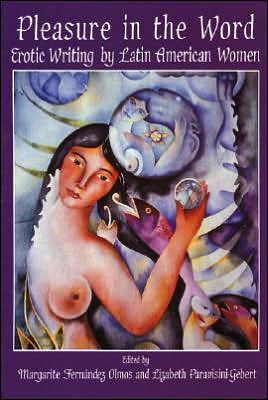 English translation of El placer de la palabraÔÇödescribed below in its original Spanish edition.
English translation of El placer de la palabraÔÇödescribed below in its original Spanish edition.Includes my translations of: "Ausencia's Tale," from Mar├şa Luisa Mendoza's De Ausencia; "How to Gather the Shadows of the Flowers," short story by Angela Hern├índez, "The Witness," short story by Cristina Peri Rossi, ÔÇťThe House of the Angel," from Beatriz Guido's La casa del angel, "Alirio," from Albaluc├şa Angel's Estaba la p├íjara pinta sentada en el verde lim├│n, "Albino Orma," short story by Silvina Ocampo, "Ca Foscari," poem by Cristina Peri Rossi, "I Soar on the Wings," poem by Nemir Matos, "On This Sunday's Painful Loneliness," poem by Gioconda Belli, "Amora," from Amora by Rosamar├şa Roffiel, and "The Final Mist," from Mar├şa Luisa Bombal's La ├║ltima niebla.
Green Cane and Juicy Flotsam: Short Stories by Caribbean Women. [English translations with introduction]. Edited with Carmen C. Esteves. New Brunswick, N.J.: Rutgers University Press, 1991; rpt. 1992, 1994, 1996, 1998. 273pp.
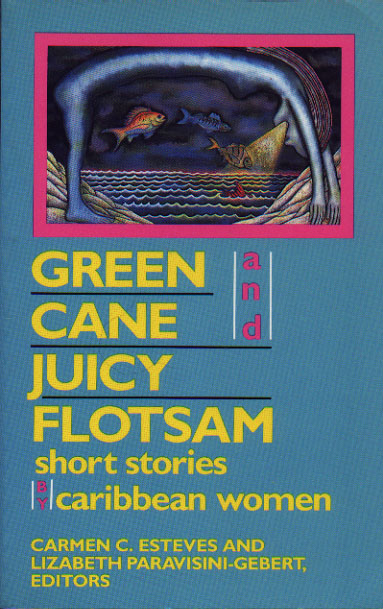 This collection of short storiesÔÇöchosen as a New York Times and PublisherÔÇÖs Weekly ÔÇťNotable BookÔÇŁ for 1991ÔÇöfeatures moving tales from the rich Caribbean oral tradition, stories that question women's traditional roles, present women's perspectives on the history of Caribbean slavery and colonialism, and convey the beautiful cadences of the language of Caribbean women. It offers the general reader a broad selection of the themes, styles, and techniques characteristic of contemporary women's fiction in the Caribbean. Along with stories by well-known writers such as Jean Rhys, Jamaica Kincaid, Michelle Cliff, Maryse Cond├ę, and Rosario Ferr├ę, the anthology also includes first-rate stories by lesser-known but equally talented writers.
This collection of short storiesÔÇöchosen as a New York Times and PublisherÔÇÖs Weekly ÔÇťNotable BookÔÇŁ for 1991ÔÇöfeatures moving tales from the rich Caribbean oral tradition, stories that question women's traditional roles, present women's perspectives on the history of Caribbean slavery and colonialism, and convey the beautiful cadences of the language of Caribbean women. It offers the general reader a broad selection of the themes, styles, and techniques characteristic of contemporary women's fiction in the Caribbean. Along with stories by well-known writers such as Jean Rhys, Jamaica Kincaid, Michelle Cliff, Maryse Cond├ę, and Rosario Ferr├ę, the anthology also includes first-rate stories by lesser-known but equally talented writers."Unique . . . a wonderful collection that will receive much attention." BARBARA CHRISTIAN
"The panorama of insights and visions is vast . . . the context of women's writings is a broadening link, connecting these writers with their contemporaries in other cultures around the world." GREGORY RABASSA
"Provides wonderful insights into writing by women from the Caribbean."J. MICHAEL DASH
Includes my translations of "Piano Bar" by Liliane D├ęvieux, "Red Flower" by Paulette Poujol-Oriol, "How to Gather the Shadows of the Flowers" by Angela Hern├índez, "The Mane" by Hilma Contreras, "No Dust is Allowed in this House" by Olga Nolla, the anonymous "T├ętiyette and the Devil," and "A Pottage of Lentils" by Marie-Th├ęr├Ęse Colimon-Hall.
El placer de la palabra: literatura er├│tica femenina de Am├ęrica Latina. Edited with Margarite Fern├índez Olmos. Mexico: Planeta, 1991. 227pp.
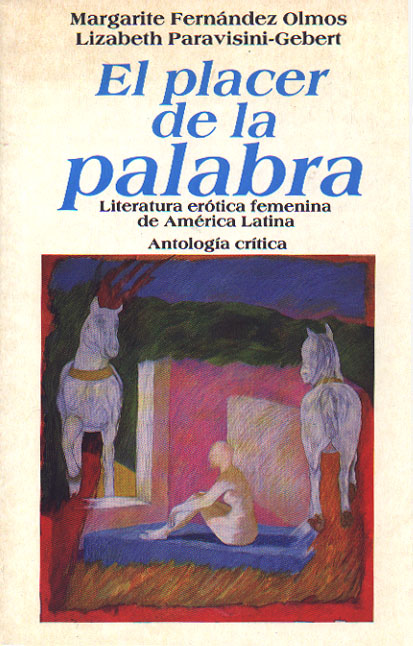 This unique compilation traces the erotic thread in 20th-century Latin American women's writing, featuring stories, poems, and fiction by 32 women writers from Central and South America. Well-known writers like Isabel Allende, Luisa Valenzuela, Rosario Castellanos, Rosario Ferr├ę, Gioconda Belli, and Ana Lydia Vega, along with other important Latin American and Caribbean writers, are introduced to the American audience.
This unique compilation traces the erotic thread in 20th-century Latin American women's writing, featuring stories, poems, and fiction by 32 women writers from Central and South America. Well-known writers like Isabel Allende, Luisa Valenzuela, Rosario Castellanos, Rosario Ferr├ę, Gioconda Belli, and Ana Lydia Vega, along with other important Latin American and Caribbean writers, are introduced to the American audience."An important chorus of our south of the border sisters for us Latinas to hear... Here we have much knowing and glorying from Argentina to Brazil to my own Dominican Republic -- toes to waist to breasts of the hemisphere!" JULIA ALVAREZ
Luz y sombra de Ana Roqu├ę. [Critical edition.] R├şo Piedras: Editorial de la Universidad de Puerto Rico/Instituto de Cultura Puertorrique├▒a, 1991; rpt. 1994, 1996. 197pp.
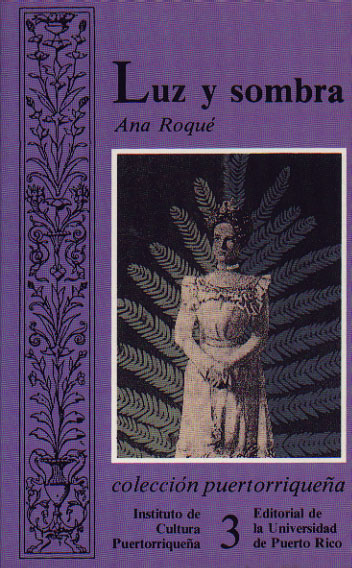 A much-reprinted critical edition of the 1903 novel by one of our suffragist leaders. The novel, which had disappeared from the Puerto Rican literary canon until this edition came out in 1991, is now recognized as a classic of feminist fiction in the island. The edition includes my critical introduction, notes, and biographical sketch of the author and a bibliography by my late and much missed collaborator Olga Torres-Seda.
A much-reprinted critical edition of the 1903 novel by one of our suffragist leaders. The novel, which had disappeared from the Puerto Rican literary canon until this edition came out in 1991, is now recognized as a classic of feminist fiction in the island. The edition includes my critical introduction, notes, and biographical sketch of the author and a bibliography by my late and much missed collaborator Olga Torres-Seda.